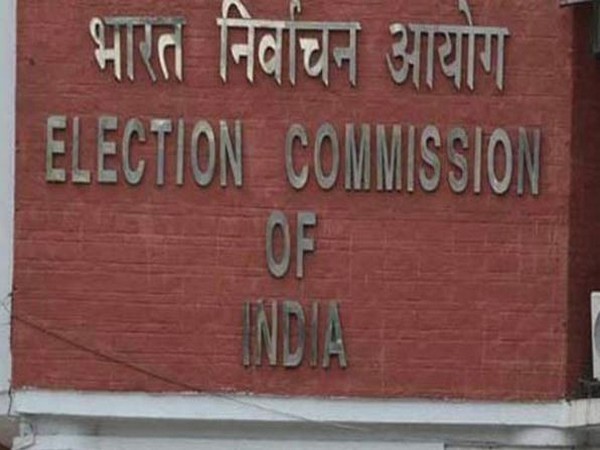Vice President Jagdeep Dhankhar Resigns; EC Begins VP Election Preparations
Shri Jagdeep Dhankhar, a seasoned politician and former Governor of West Bengal, had assumed office as India’s 14th Vice President on August 11, 2022.

- Country:
- India
In a significant development in India’s constitutional landscape, the Ministry of Home Affairs (MHA), through its Gazette Notification S.O.3354(E) dated July 22, 2025, officially notified the resignation of Shri Jagdeep Dhankhar, the Vice President of India. With this announcement, the office of the Vice President stands vacant, triggering the constitutional process for the election of a new incumbent.
Shri Jagdeep Dhankhar, a seasoned politician and former Governor of West Bengal, had assumed office as India’s 14th Vice President on August 11, 2022. His resignation, the reasons for which have not yet been made public, comes more than two years into his tenure and ahead of the natural completion of his five-year term. His departure marks a rare mid-term vacancy in one of the country’s highest constitutional offices.
Election Commission of India Activates Constitutional Machinery
Following the official notification, the Election Commission of India (ECI) has taken swift steps to begin preparations for the Vice-Presidential Elections, 2025, in accordance with its constitutional mandate under Article 324 of the Indian Constitution. The election to the office of the Vice President is governed by the Presidential and Vice-Presidential Elections Act, 1952, and the associated Election Rules of 1974.
As per constitutional provisions, the Vice President is elected by an electoral college consisting of the members of both Houses of Parliament—the Lok Sabha (House of the People) and the Rajya Sabha (Council of States). This includes both elected and nominated members, unlike the Presidential election where only elected members are eligible to vote.
Preparatory Steps in Motion
Although the formal election schedule is yet to be announced, the ECI has already initiated several preliminary and logistical processes that precede the official declaration. These include:
1. Compilation of Electoral College
The Secretariat of the Election Commission is currently engaged in finalizing the comprehensive list of electors, which includes:
-
Elected Members of Lok Sabha (543)
-
Nominated Members of Lok Sabha (2)
-
Elected Members of Rajya Sabha (233)
-
Nominated Members of Rajya Sabha (12) This brings the total number of electors to approximately 790, subject to any vacancies.
2. Appointment of Returning Officers
The process to finalize the Returning Officer (RO) and Assistant Returning Officer(s) (ARO) is underway. These officers will be responsible for overseeing the conduct of the election, managing nominations, issuing ballots, supervising voting, and declaring results.
3. Background Research and Documentation
The Election Commission is preparing a detailed background compendium on previous Vice-Presidential Elections, covering key statistics, procedural evolutions, electoral outcomes, and legal precedents. This initiative aims to ensure transparency and provide context to candidates, electors, the media, and the public.
Upcoming Election Timeline and Notification
As per standard procedure, the ECI will soon announce the schedule for the Vice Presidential election, which includes:
-
Date of issue of notification
-
Last date for filing nominations
-
Date for scrutiny of nominations
-
Last date for withdrawal
-
Polling and counting date
By law, the vacancy must be filled as soon as possible, and ideally within 60 days of its occurrence. Therefore, it is expected that the election will take place by or before September 2025.
Constitutional Significance of the Vice President’s Role
The Vice President of India is the second-highest constitutional authority in the country. The officeholder serves as the ex-officio Chairman of the Rajya Sabha and acts as a key link between the legislative and executive branches. In the event of a vacancy in the office of the President, the Vice President may also assume presidential duties temporarily.
This election, therefore, holds high constitutional and political significance, as the new Vice President will not only preside over the Rajya Sabha but could also play a critical role in any future constitutional transitions or crises.
Political Climate and Anticipated Contest
Although the formal nomination process is yet to begin, political analysts expect a closely watched contest. The outcome will largely depend on the numerical strength and alliances within Parliament. With several key bills and parliamentary sessions scheduled later this year, the incoming Vice President is expected to play an influential role in steering legislative discourse.
A Period of Watchful Transition
The resignation of Shri Jagdeep Dhankhar has ushered in a period of transition in India’s constitutional hierarchy. As the Election Commission fast-tracks its preparations, all eyes will be on the announcement of the poll schedule and the unfolding of the next high-stakes electoral event in India’s parliamentary democracy.
ALSO READ
Honoring Legacy: Rajya Sabha Lecture to Commemorate Former PM Chandra Shekhar
Preserving Heritage and Nature: Lok Sabha Speaker's Vision for Bundi
Kerala Governor Calls Ideology 'Inhuman', Celebrates Rajya Sabha Nominee's Resilience
Eminent Personalities Nominated to Rajya Sabha
Controversy Brews Over New Digital Attendance in Lok Sabha










